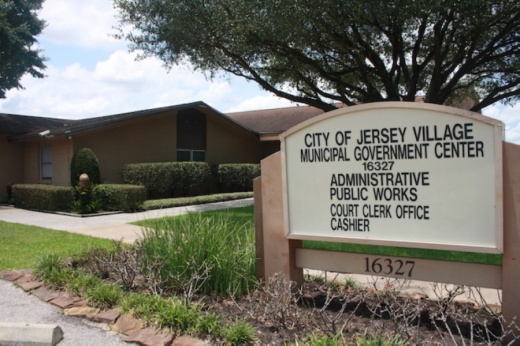City officials are proposing a tax rate of $0.723466 per $100 of valuation, down from $0.7425 per $100 of valuation in FY 2019-20. Based on average taxable values, a Jersey Village homeowner can expect to pay $60 more in property taxes than in the previous year, according to city estimates.
The city is expected to bring in about $360,000 more in property tax revenue than it did in FY 2019-20. The tax rate the city is proposing is also known as the "voter approval" rate; it is the highest rate the city can propose without needed to seek voter approval under a new state law that went into effect this year.
The proposed tax rate would be the first time the city changed its tax rate since 2006, when it was increased from $0.675 per $100 of valuation to its current rate of $0.7425 per $100 of valuation, according to city records. A public hearing has been set for 7 p.m. Sept. 28 at Jersey Village City Hall, 16327 Lakeview Drive, Jersey Village.
The Jersey Village City Council also voted to adopt it's FY 2020-21 budget at a Sept. 21 virtual meeting of the Jersey Village City Council. The budget funds a number of flood recovery projects and construction on a new City Hall, among other projects.
City Manager Austin Bleess said the city took a caution approach to budgeting this year with COVID-19 in mind. General fund revenues are projected to come in at $17.4 million, ahead of expenditures at $16.5 million. About 37% of the revenue will come from property taxes while 33% will come from sales taxes.
“We anticipate sales tax to continue well, but COVID is certainly an unknown,” Bleess said.
The city is also opting to keep homestead exemptions at 14% this year, though several council members said they hope to be able to increase exemptions to the maximum of 20% in the future, and the topic is likely to be brought up again at next year's budget planning process. Because the city must notify the Harris County Appraisal District of any changes to its homestead exemption rate by a certain time, the decision to raise it must be made around late June or early July of the budget year, officials said.
Council member Bobby Warren pointed out that, when the decision not to raise the homestead exemptions was made in July, the Houston area was in a much different place with regards to COVID-19.
"We were dealing with something that was completely unprecedented in at least 100 years," he said. "I think we’re doing exactly what needs to be done in terms of being fiscally responsible on both ends, expenditures and revenues."





